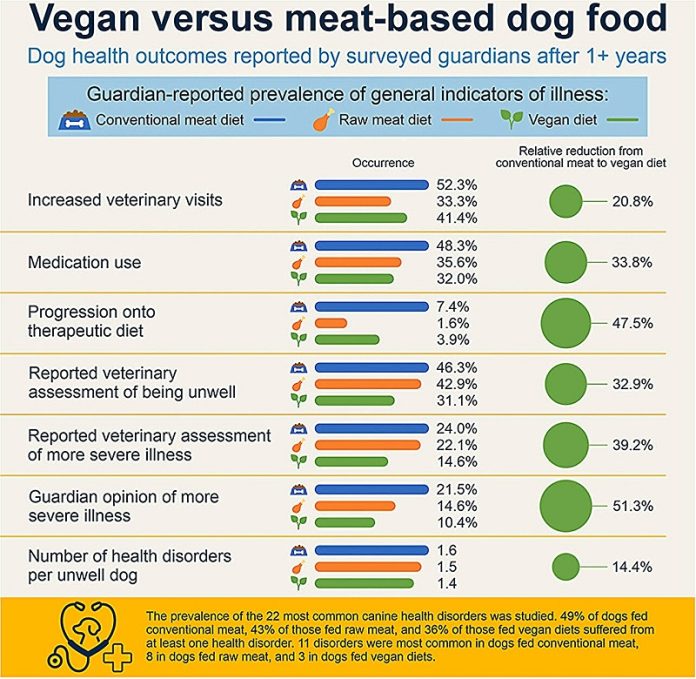
Recent studies show that vegan diets may not only be good for the environment but also improve the health of dogs.
Pet food production uses at least 9% of all livestock globally, and this number rises to 20% in countries like the U.S., where pet ownership is high.
Since most pet food is made for dogs, the environmental benefits of vegan dog food could be significant. But can dogs really stay healthy without eating meat?
Dogs are natural omnivores, meaning they can eat both plant and animal-based foods.
Today, many companies are producing vegan dog food using plant-based ingredients, minerals, and synthetic nutrients to meet all of a dog’s dietary needs.
By 2024, ten scientific studies had already shown that dogs can maintain good health on vegan or vegetarian diets. The British Veterinary Association has also supported vegan diets for dogs, as long as they are nutritionally balanced.
However, none of the previous studies had fully explored the health benefits of vegan diets in dogs while considering factors like age, breed, exercise level, and neutering status, all of which affect a dog’s health.
To address this, veterinary Professor Andrew Knight and his team conducted the first study that accounted for all of these factors. They analyzed data from 2,536 dogs, including 336 that had been fed a vegan diet for at least a year.
Their findings showed that dogs on vegan diets had better health outcomes in several areas. These dogs were less likely to need medication, special medical diets, or frequent vet visits.
Owners and veterinarians also reported that these dogs were healthier overall, with lower rates of illness and fewer health problems.
In fact, dogs on vegan diets experienced 14% to 51% fewer health issues compared to those on conventional meat-based diets.
Even more impressively, dogs on vegan diets were 50% to 61% less likely to suffer from common health problems, such as weight issues, ear infections, and problems with their muscles, bones, and digestion. These conditions often lead to lameness and diarrhea, but they were much less common in vegan-fed dogs.
In another study from 2022, 49% of dogs fed conventional meat diets were found to be unwell, compared to 43% of those fed raw meat and just 36% of dogs on vegan diets.
“Dogs fed vegan diets clearly had the best health outcomes in this large-scale study,” said Professor Knight.
“This is great news for dog owners who want to protect the environment while also improving their dogs’ health.
However, it’s important to ensure that vegan diets are nutritionally balanced, so always check the packaging and buy from reputable brands.”



